Related Research Articles

A nursery rhyme is a traditional poem or song for children in Britain and other European countries, but usage of the term dates only from the late 18th/early 19th century. The term Mother Goose rhymes is interchangeable with nursery rhymes.

A lullaby, or a cradle song, is a soothing song or piece of music that is usually played for children. The purposes of lullabies vary. In some societies, they are used to pass down cultural knowledge or tradition. In addition, lullabies are often used for the developing of communication skills, indication of emotional intent, maintenance of infants' undivided attention, modulation of infants' arousal, and regulation of behavior. Perhaps one of the most important uses of lullabies is as a sleep aid for infants. As a result, the music is often simple and repetitive. Lullabies can be found in many countries, and have existed since ancient times.
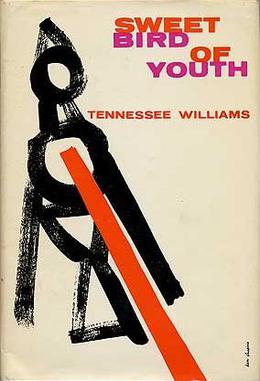
Sweet Bird of Youth is a 1959 play by Tennessee Williams that tells the story of a gigolo and drifter, Chance Wayne, who returns to his hometown as the companion of a faded movie star, Alexandra del Lago, whom he hopes to use to help him break into the movies. The main reason for his homecoming is to get back what he had in his youth, primarily, his old girlfriend, whose father had run him out of town years before. The play was written for Tallulah Bankhead, a good friend of Williams.
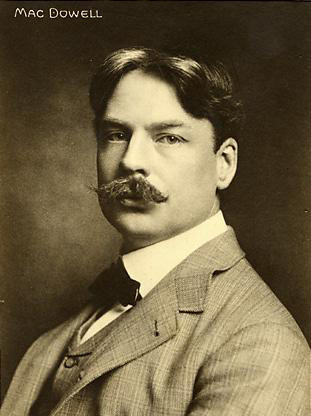
Edward Alexander MacDowell was an American composer and pianist of the late Romantic period. He was best known for his second piano concerto and his piano suites Woodland Sketches, Sea Pieces and New England Idylls. Woodland Sketches includes his most popular short piece, "To a Wild Rose". In 1904 he was one of the first seven Americans honored by membership in the American Academy of Arts and Letters.

"Away in a Manger" is a Christmas carol first published in the late nineteenth century and used widely throughout the English-speaking world. In Britain, it is one of the most popular carols; a 1996 Gallup Poll ranked it joint second. Although it was long claimed to be the work of German religious reformer Martin Luther, the carol is now thought to be wholly American in origin. The two most common musical settings are by William J. Kirkpatrick (1895) and James Ramsey Murray (1887).
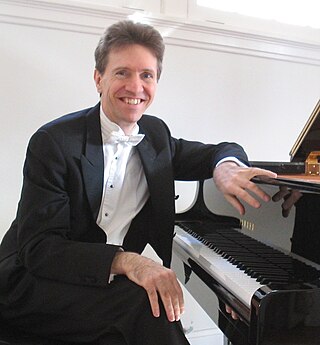
Jack Gibbons is an English-born American classical composer and virtuoso pianist.

Morfydd Llwyn Owen was a Welsh composer, pianist and mezzo-soprano. A prolific composer, as well as a member of influential intellectual circles, she died shortly before her 27th birthday.
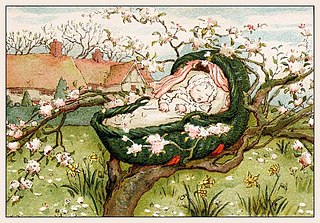
"Rock-a-bye baby on the tree top" is a nursery rhyme and lullaby. It has a Roud Folk Song Index number of 2768.

"Golden Slumbers" is a song by the English rock band the Beatles from their 1969 album Abbey Road. Written by Paul McCartney and credited to Lennon–McCartney, it is the sixth song of the album's climactic B-side medley. The song is followed by "Carry That Weight" and begins the progression that leads to the end of the album. The two songs were recorded together as a single piece, and both contain strings and brass arranged and scored by producer George Martin.

Griselda is a figure in European folklore noted for her patience and obedience.
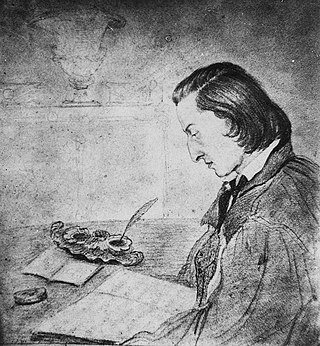
Frédéric Chopin's "Berceuse", Op. 57, is a lullaby to be played on the piano. He composed it in 1843/44 as variations in D-flat major. Chopin originally called his work "Variantes". "Berceuse" was first published in Paris in 1844 by Jean-Racine Meissonnier, dedicated to Chopin's pupil Élise Gavard, and appeared in London and Leipzig the following year.
Cradle Song may refer to:

"The Virgin's Cradle Hymn" is a short lullaby text. It was collected while on a tour of Germany by the English poet Samuel Taylor Coleridge, and published in his Sibylline Leaves of 1817. According to his own note, Coleridge copied the Latin text from a "print of the Blessed Virgin in a Catholic village in Germany", which he later translated into English. The text, actually from a collection of devotional Flemish engravings by Hieronymus Wierix, has inspired a number of modern choral and vocal musical settings.
A Charm of Lullabies, Op.41 is a song cycle for mezzo-soprano with piano accompaniment by Benjamin Britten. It consists of five songs composed on poems by William Blake, Robert Burns, Robert Greene, Thomas Randolph and John Phillip. It was written in 1947 for Nancy Evans, who gave the first performance with Felix de Nobel (piano) at a festival in The Hague 3 January 1948. The score was first published in 1949 by Boosey and Hawkes in London.

"A Cradle Song" is a poem written by William Blake in 1789, as part of his book Songs of Innocence.

Two Songs for Voice, Viola and Piano, Op. 91, were composed by Johannes Brahms for his friends Joseph Joachim and his wife Amalie. The text of the first song, "Gestillte Sehnsucht", is a poem by Friedrich Rückert, composed in 1884. The text of the second, "Geistliches Wiegenlied" was written by Emanuel Geibel after Lope de Vega, and set to music in 1863. They were published together in 1884.

"Wiegenlied", Op. 49, No. 4, is a lied for voice and piano by Johannes Brahms which was first published in 1868. It is one of the composer's most famous pieces.
Lady Julian Billingham or Bellingham (1673–1730) was a member of an aristocratic 17th-century Scottish family and a maker of soap.
References
- 1 2 McKerrow, Ronald B.; Greg, W. W., eds. (October 1909). "The Play of Patient Grisell". Malone Society Reprints. Retrieved 30 December 2014.